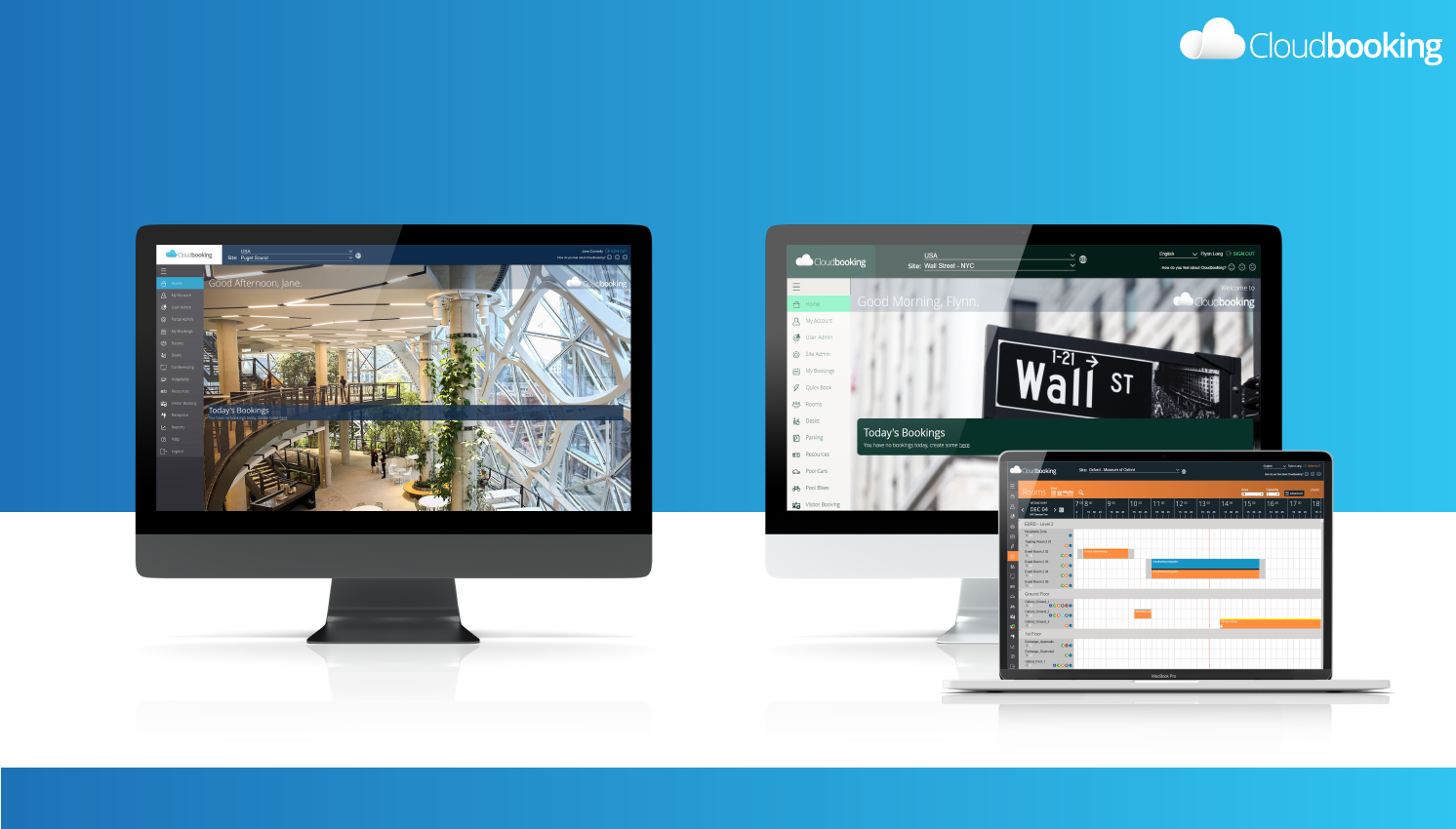
The massive work-from-home experiment the world undertook, triggered by the COVID-19 pandemic, proved to employers that people can work remotely. In 2020, it was estimated that four out of five UK workers were working from home at some point.
Get a free demo
Enquire about a no-obligation demo today and get an exclusive hybrid working research paper — for free. Created in partnership with YouGov, this invaluable guide provides essential insights into developing your own effective hybrid strategy. Click below.
Many businesses are trying to tackle the same set of problems centered around reopening their offices following lockdown and implementing a recovery plan.
“When is the right time to reopen, and what safety measures are most effective when bringing employees back? What functions need to happen in the office, and which can take place remotely?”
Luckily, there are facilities management solutions that can help formulate this plan.
When the pandemic eventually ends, it is likely that the offices we return to will not be the same offices we left. The accelerating digital transformation of the workplace is forcing organizations to find new ways to empower colleagues with superior user experiences that assist them in adopting remote working when needed — all whilst increasing workplace safety, productivity and real-estate efficiency. We are likely to see a new hybrid workplace that combines part-time remote working and office space designed for effective collaboration.
Employers will need to be flexible as they move forward in their COVID-19 recovery plans, leveraging technology as much as possible to ensure that their buildings offer a safe environment that is compliant with regulations. This is where the help of facilities management solutions comes in.
What Are Facilities Management Solutions?
Every organization relies on a mix of functions and services to provide the support essential to its core business operations. Ensuring that this support is available in the right form, at the right quality and for the right cost is the domain of facilities management. Facilities management solutions use advanced technology to help businesses to manage their key facilities or, in other words, to look after all the elements that keep their organizations up and running. They exist to ensure you make the right business decisions about your two most important assets, your space and your people.
The workspace management tools and data insights facilities management systems offer can ensure that businesses truly understand how their spaces are being used and how they can fully optimize what they already have. Whether that’s managing desks, rooms, visitors or the movement of people, this data is designed to make recovery planning simpler and easier.
Prioritizing People Over Places
When it comes to forming a COVID-19 recovery plan and adapting to the new way of hybrid working, businesses must be able to protect their employees from any continued COVID-19 risk and alleviate their anxieties about returning to the office space.
This necessity of creating a safe workplace will put a greater emphasis on prioritizing “people” over “places” in the work environment. Facilities management solutions can help businesses plan recovery from the effects of COVID-19 through creating a safe workplace by addressing the following factors:
- Low touch or QR booking technology
- Control of workspace availability
- Colleague desk assignment
- Self-service visitor check-in and health screening
- Workspace contact tracing
- Workspace sanitization
Low Touch or QR Booking Technology
Many workers are resistant to returning to the office, with continued anxieties about the risk of catching COVID-19 still playing heavily on their minds. This will be one of the main issues businesses face when they look to re-open, and these must be addressed in their recovery plans.
Contactless workspaces are the answer to a lot of these fears. Cloudbooking’s facilities management software uses touchless QR codes and readers to allow onsite personnel to complete several activities. From guests notifying reception of their arrival to workers checking into meetings and grabbing a workstation, QR codes can help people move around the office and get work done without having to touch surfaces or physically engage with their work environment.
Control Workspace Availability
With facilities management technology, it is also easy for businesses to adapt their existing workplace seating plans and meeting room capacities to encourage effective social distancing and help to prevent office overcrowding. Insight tools provide real-time data into the capacity of the workspace, allowing for the below measures to be taken:
- Reducing workspace seating capacities to ensure safe social distancing measures.
- Applying desk zoning for specific teams or shift patterns.
- Remotely managing and assigning sanitization requests after a colleague checks out.
Colleague Desk Assignment
Cloudbooking offers a desk booking solution to help businesses manage new ways of working after COVID-19.
It can facilitate the planning and management of employees’ return to offices, helping them to work safely with predetermined desk assignments or bookings. It does this by allowing businesses to map out seating arrangements, manage office capacity and ensure safe and flexible working for employees through their desk booking software. Employees will be notified of adjustments via their mobile devices before arrival, reducing frustrations and inefficiencies caused by limited desk availability.
Self-Service Visitor Check-in & Health Screening
Managing onsite visitors should be a key consideration for any business forming a COVID-19 recovery plan. This will ensure the safety and security of employees and visitors alike by minimizing the risk of spreading the virus.
Facilities management technology can be deployed easily, allowing businesses to offer pre-registration and visitor site access approvals. This will let them monitor their capacity, ensuring they are meeting social distancing guidelines. Colleague and visitor wellbeing can also be protected with health and safety screenings and the implementation of self-service visitor check-in with Cloudbooking’s check-in app.
Workspace Contact Tracing
Having a contact tracing system in place is going to be a vital part of any business’s COVID-19 recovery plan.
Cloudbooking’s facilities management solution has a contact tracing function, allowing for the enhanced safety and wellbeing of employees. With this system in place, businesses can quickly access contact tracing reports should infection be detected onsite. Any individuals who’ve been infected can be identified, triggering an alert of where they’ve worked and who was nearby to ensure appropriate steps and sanitization measures can be actioned.
Workspace Sanitization
Workspace hygiene and colleague health will be best maintained through a regular cleaning schedule once offices have reopened. Desk and meeting room sanitization between uses will help reduce possible infection spread and give employees peace of mind. Facilities management solutions can help businesses easily assign workspace sanitization requests following colleague check-outs and notify the facilities team of “routine” or “deep clean” requirements.
Cloudbooking technology has proven to be an invaluable resource for many organizations when creating their COVID-19 recovery plans. Capable of helping you to manage your adaptation to the new normal and ensuring employee wellbeing and safety, our software can make all the difference. Contact us now for a no-obligation product demo.


